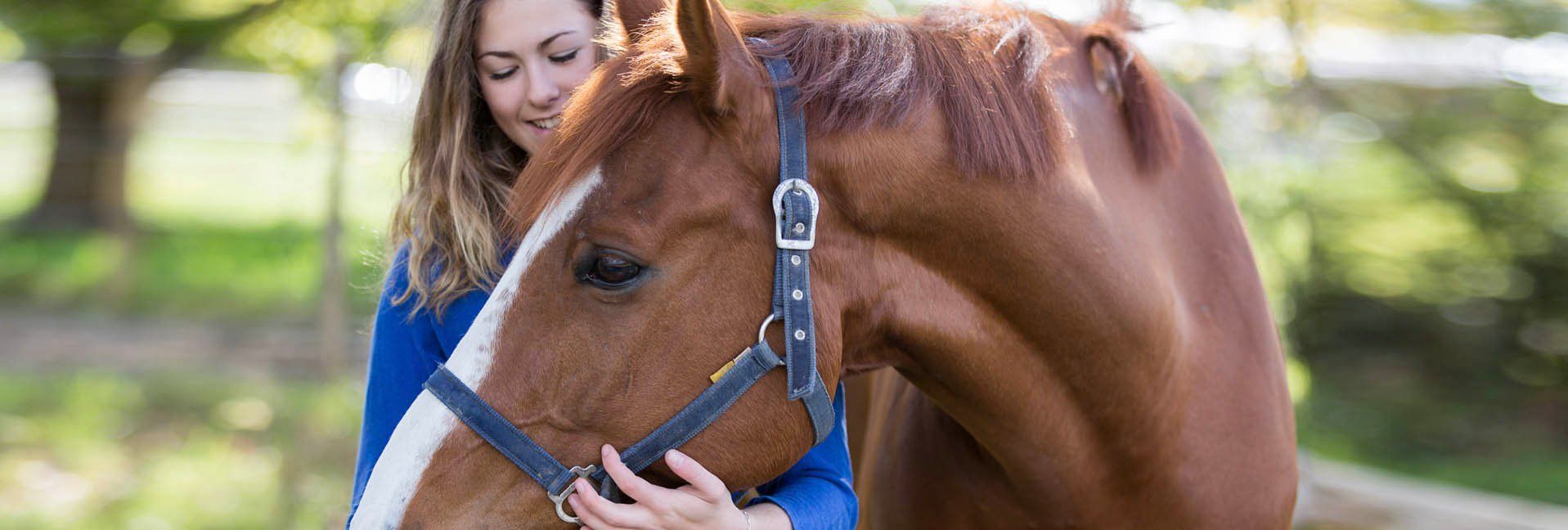‘Can I have a pony, puh-leeze?’ - Tips on buying your first horse


It’s one of life’s inevitabilities. Unless you already use horses for ranching or your own pleasure-riding, when you have a child who is horse-crazy, it’s only a matter of time until you will be asked—pleaded with, actually—to buy her first horse.
While there will probably be many horses and ponies in a person’s riding career, the first one matters more than any other to cement the love, understanding, and control of the equine species.
AcreageLife reached out to Jasmin Stair, the head trainer at Jasmin Stair Stables in Rancho Santa Fe, Calif. for advice. Having succumbed at an early age to being “horse-crazy,” she has been a rider, trainer, and horse trader her entire life.
“Owning a horse is wonderful and fulfilling,” Jasmin says. “The first thing to consider before taking the leap into purchasing a horse or pony is to realize that it's a large commitment. The horse you purchase will be depending on you to take care of all his or her needs.”
She offers up a few tips to help you navigate the horse buying process:
Find the right trainer or facility
Identifying the right trainer and/or boarding facility is an important step to take before even starting your search. If you're going to be showing or competing, a trainer in your area that fits both horse and rider needs will set you up for success. Once you find a trainer who clicks—teaching style, price range, location, and facility—then begin searching together for your equine partner. Your trainer will help you find the correct horse, taking into account your riding level, discipline, goals, and budget.
If you're a pleasure rider without a barn at home, scope out a boarding facility that appeals. Look for clean stalls or corrals, turnout options, good quality hay, access to an arena or trails, and a positive environment where you'll want to spend time.
If you're a beginning rider, a facility with more experienced horse owners can give you a few pointers, such as recommending a farrier or vet
What’s your budget?
Choose a budget range that is realistic and comfortable for you. Buying the horse is the easy part; keeping up with the monthly care and expenses should always be budgeted in. Don't over-stretch yourself with the purchase price and be sure to leave room in your budget for ongoing care.
Also, be realistic with what your budget can buy. For a $10,000 budget, you will probably need to be open to a horse that is a little older or needs a bit more maintenance. This is where a trainer or an experienced friend can help. There is an appropriate horse for any budget, and you might not get your "perfect" dream horse, but you can find something safe and sound for your purposes.
Another budget option: lease-to-buy.
What do you really need?
Consider what your goals are the riding level you are at, and make a list of "must haves" and "negotiables." Age, temperament, size, and how much training the horse has had (or will need in the future) are very important factors in finding the right match.
Beginners shouldn’t buy a three-year old off the race track. Instead, find a horse that will be safe for your level of experience, help you reach your goals, and—importantly—that you will have fun riding.
Must-haves—If you are a 5'9 adult beginner rider who would like to compete at the county show level in the long stirrup division, a $15,000 to $25,000 budget might give you a safe, quiet older horse that will build confidence. This means:
- Over 16.1 hands
- 12-16 years old that is the “been there, done that” type
- Good ground manners and sweet personality
- Several years of experience jumping 2’3" and under
- Sound for riding four times per week, jumping small courses, and showing a few times a year
Negotiables—More flexible items on your list might be:
- Prefer grays, but open to other colors
- Accepting needed maintenance (supplements, injections)
- Has a comfortable canter but not necessarily a fancy mover
- Possibly open to a horse in later teen years
- Like warmbloods, but open to Thoroughbreds or quarter horse mixes
- Maybe a show record at the county level
On the other hand, a trail horse or simple pleasure horse can often be had for $5000, giving you:
- Easy-to-handle, good ground manners
- Great on trails
- Travels well
- Goes English or western
- Stands for vet and farrier
Do a trial
Once you find a horse that looks on paper, make an appointment to try the horse out. Sometimes sellers will let you take a horse home on trial for a few days. If not, definitely go back and try the horse a second time. Spend time with the horse, watch it get groomed and tacked, and do everything while riding that you'll be doing regularly.
Never buy after seeing a horse only once
Ask the owners or trainer representing the horse any and all questions you may have.
- Background info on the horse, including any old injuries, and maintenance or injection schedules
- What has the horse been doing
- Temperament and energy level—suitable for a beginner or advanced rider?
- Does the horse need to be regularly schooled by a professional?
- Why they are selling the horse
Do a pre-purchase exam
If you've found your future horse, the next essential step is to find a veterinarian to do a simple vet check (for a lower priced horse) to a complex one with x-rays (for a higher budget horse).
Note that lot of horses have issues come up, and this is not a deal breaker; talk to your vet and trainer and let them help you decide. The more educated and informed you are, the better your decision will be.
“The entire process of buying a horse can be fun, but don't get discouraged if it takes time,” Jasmin says. “It's more important to find the right match to ensure a long, happy partnership and home for your future equine partner.”
Additional tips
Visit local rescues if all you're looking for a pleasure horse to trail ride or even just a pasture mate for a horse you already have.
To find a trainer in your area, check out websites related to discipline you are considering.
Numerous websites and blogs can also help you identify tips from top trainers, as well as experienced amateur and pleasure riders.
For more information:
Horses Are Evil
I hate horses—there, I’ve said it. I grew up with them, but unlike my older sister, I did not grow to love them. In fact, my sister’s love for all things equine accounted for why we moved from a comfortable suburb to a small farm in the country.
Why do I hate horses? This can be summed up in two episodes:
Lesson #1: be prepared
“Tropicana is a wonderful pony—you’ll love her!” These words were supposed to comfort me about age six as I was hoisted on to the pony’s back. My sister was adjusting the bridle and other things when suddenly the pony bolted. “Grab her mane and hold on!” I thought I heard, so I did…until the running pony deposited me in the middle of the road in front of an oncoming car.
Lesson #2: be prepared to duck
“I need you to walk this horse for a few minutes until he cools down,” my sister called out. “Just hop on.” I had managed to stay off horses until this time, and was about 11 or 12. Being agreeable (or forgetful) I hopped on and let the horse walk around. Then my sister wanted to see the horse trot. I said no. So she decided to short-circuit the process and picked up a rock to toss as the horse’s hooves.
Her whole life, my sister has thrown like a girl. So instead of startling the horse, the rock beaned me square on the noggin, knocking me to the ground. She said she was sorry but I learned my lesson—horses are evil.
Tags:Horse Sense

Acreage Life is part of the Catalyst Communications Network publication family.
















